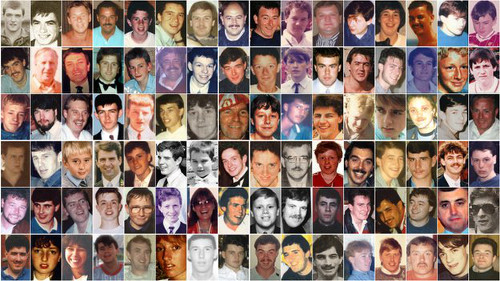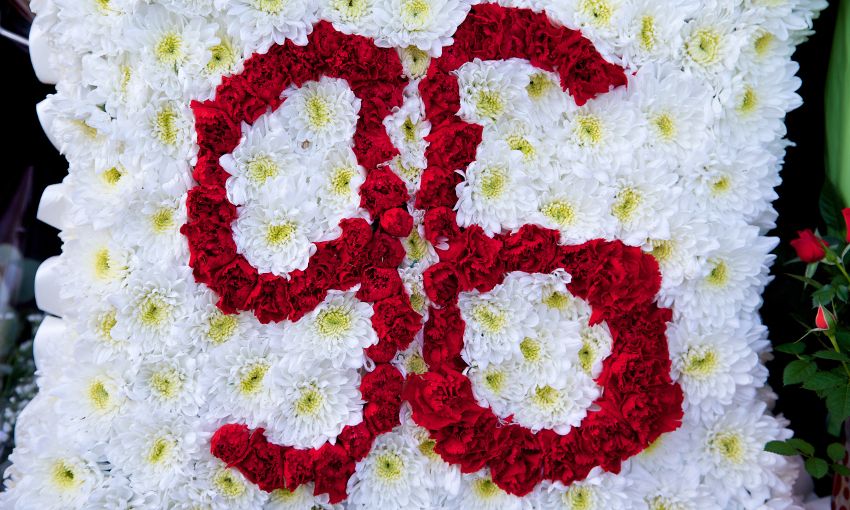Hillsborough inquests - February 12
The Hillsborough inquests commenced on March 31, 2014 and are the subject of reporting restrictions that have been imposed by the Attorney General's office. Liverpool Football Club is respectful of these restrictions and will therefore only be making available updates from other media channels for the duration of the inquest.

The report below - and the witness testimony contained within it - does not necessarily reflect the views of Liverpool FC. Please be aware that the reports on these pages will contain evidence about the day of the disaster which may be distressing.
To view archive reports from each day of the inquest hearings, click here.
Courtesy of the Liverpool Echo - February 12
Officers in the control box at Hillsborough “gave no thought” to the consequences of allowing fans in through exit gates, the inquests jury heard.
As he continued his summing up for a 10th day, coroner Sir John Goldring recapped the evidence of the officers who were on duty in the police control box for the semi-final on April 15, 1989.
The court heard that officers in the box, who were able to see CCTV footage from around the ground on monitors, had received radio messages from Superintendent Roger Marshall, who was at the Leppings Lane turnstiles, asking for gates to be opened to relieve the crowd outside.
But, the jury was told, they had not considered that fans entering through exit gate C might go down the tunnel which led to the central pens of the terrace.
A log written by Trevor Bichard, the constable operating cameras in the control box, recorded a request from Mr Marshall at 2.50pm.
Mr Bichard recorded in the log: “We must open the gates or someone is going to be killed, please open the gates (said in a very distressed voice).”
Ground commander Bernard Murray, who died before the new inquests started, said in evidence to the Taylor Inquiry in 1989 that Mr Marshall made three or four requests to open the gates.
He said when the last request came through he asked match commander David Duckenfield if he was going to open the gates.
Sir John said: “What he said he meant by that was ‘you have got to make the decision now’.
“He did not agree, he said, that Mr Duckenfield was dithering.”
Sir John added: “The instruction was given to open the gates.
“No instruction was given about closing the tunnel.
“No attempt to pass on any such instruction to the stewards was made.
“No instruction was given to concentrate first on gate C.
“Members of the jury, you may wish, obviously, to take this evidence into account when you consider the sequence of events that led to gate C being opened at 2.52pm.”
Mr Murray was asked at the Taylor Inquiry where he thought the fans who came through exit gate C would go once they entered the ground.
Mr Murray said: “I had never drawn any realisation that coming through gate C would go towards the tunnel or whatever.
“I have never envisaged Gate C as an entry gate of course, but the two things just did not register, did not tie up.
“It seems so obvious after the event but certainly I gave it no thought and realisation before.”
The court heard Michael Goddard, a sergeant on duty in the control box, had also described seeing fans come through exit gate C after the order was given to open it.
The coroner said: “He gave no thought, he said, as to the consequences of opening the gates.”
Mr Goddard said he thought he had looked at the central pens a minute or two before the gate was opened and was aware they were getting full.
Sir John said: “He did not think, he said, about the closing the tunnel.”
When he was questioned by Pete Weatherby QC, representing 22 of the families, Mr Goddard was shown a picture of the Leppings Lane terraces at 2.59pm, when supporters could be seen climbing over fences and gates in the pitch perimeter fences were open.
The coroner said: “He agreed all this was visible from the police control box.
“Mr Weatherby asked: ‘So at least by 2.59pm, it was quite clear that this was a major incident?’
“Answer: Yes.
“Question: No one behind you was ordering anything at this point?
“Answer: No.
“The suggestion implicit, of course, was that at this time a major incident should have been declared.”
The jury was reminded that at 3.04pm the police control box contacted force headquarters to ask for dog handlers to be called to the ground.
A message recorded on transcripts said: “Have you got any dog handlers available to attend the stadium immediately please?”
Michael Ryan, the constable in charge of the phones in the control box, said at first he thought there was a pitch invasion.
But he said he saw Superintendent Roger Greenwood running onto the pitch to stop the game at 3.06pm.
Sir John said: “He said he thought it was soon after that that it was realised in the police control box that there was a more serious problem.”
Click here for a full transcript from February 12.



